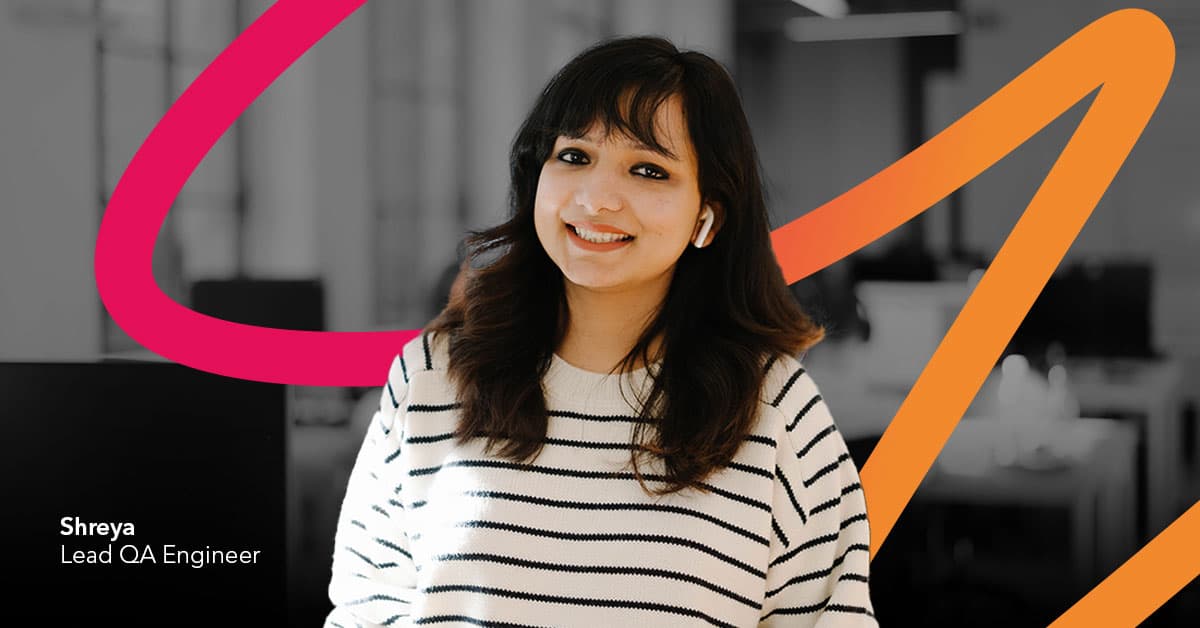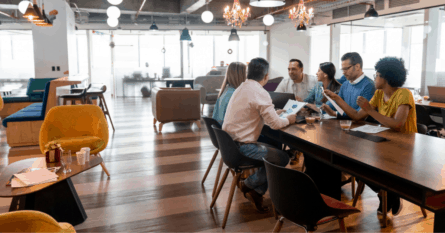Shreya shares her experiences as a woman working in the male-dominated field of tech.

This March 8, we’re celebrating International Women’s Day by beginning a series of interviews highlighting some of our exceptional female colleagues who help make Blacklane better.
As our Lead QA Software Engineer, Shreya has broken into the male-dominated tech bubble and has seen it evolve into a more gender-diverse place.
How do you think your field is doing regarding gender equality?
“If I remember the time that I started, I’ve always worked with a team where, probably coincidentally, I was the only girl and there were more guys in the team. But, I think now it’s getting better because when I go to meet-ups and such things, I do see women. There are a lot of these Hackathons and tech conferences that happen which are [done by] women, and there are also women entrepreneurs, so I think it’s getting better.”
What challenges have you overcome as a woman in your chosen profession?
“I think it was about not getting intimidated by not knowing things. And then, overcoming that fear and just keep growing and keep learning — looking for what the future holds, and how I can really grow into one of the leadership positions, for example. So, it’s not getting intimidated and just keep pushing and keep growing.”
Is that fear from within, or is it from external forces? Or some combination of both?
“It’s mostly within, but it could also be from the environment and the things that you see. You sort of feel a bit of competitiveness around you and you want to be fast enough to learn so that you don’t feel like you’re behind.”
Is there a stigma that women in tech aren’t appropriate for leadership positions or that they are going to fall behind?
“I don’t think so. It’s just that there are less women in leadership probably, in general. I have not seen such a stigma, but it’s more [common] that we see more males in those positions as compared to females.”
Are there any notable experiences as a woman that you think make you more capable at your position?
“Yeah, I think empathy is one thing that, as women, that’s our strength in general. I think that has really helped me in a lot of ways, to bring that not as a weakness but as my strength and then build that culture within the teams. That people trust, they can talk about things, they can openly share… so, empathy is one of the strengths I feel that has really worked for me.”
What can women do to help support each other in the workplace?
“From my experience, maybe we can support each other to grow. As I said, we have empathy so we can talk, we can share with each other, and see how we can really support each other to fulfill the ambitions that we have. [See] how we can really grow together along that path. Not competing against each other and really growing together and supporting each other more, emotionally and empathy-wise.”
Is there a woman in your career that you looked up to or that helped push forward the skills that you have today?
“Really recently in Blacklane, I’m working with Andrea, I’m working with Evie, and it’s really helpful because they are the leaders in their field and it’s really great to see how they are growing and how they have evolved. And they are actually really supporting me to get into the role or ambition that I’m looking forward to.”
What can people who don’t identify as women do to support women?
“[Changing the] mindset. Not defining someone based on their gender but based on their capabilities, and not restricting them, just believing that that person can also do it no matter what situation they are in.”
What is the best thing about being a woman in your current work environment?
“As I said, one thing was about empathy, the second thing is about bringing that diversity into the team. Then you get different kinds of viewpoints, and you talk about different topics, and the experience that you get when you have this kind of diversity in a team and how you grow with that.
I think that is something that I bring into the team, and also being empathetic, because this is the feedback that I’ve got a lot. You know, ‘Shreya has that emotional touch’, and ‘we can really share things with her’, so I think that’s something that maybe goes missing when there are only guys. That kind of diversity is something that we can really bring forward. Even technically, the things that we share, how we see things, all of that.”
How do you think Blacklane is breaking the bias?
“Frankly, I haven’t seen that sort of a bias in Blacklane in general since I’ve been working here. I just feel that I’ve been given the opportunities that I was good at, I was able to bring forth my potential, I was given the support that I needed initially, and that helped me become more fearless.”
How do you feel about Blacklane’s gender diversity?
“There are less women, but I don’t think that the intention is that we do not want to hire or something of that sort. I also see that in leadership positions we have women for Customer Care and even for Finance and head of Product, so there are women who are there, who are being hired, and who are being supported.
Maybe we can do better, but I’m not sure that we are not trying to do it or we’re being biased about it. We just sort of hire when we find the right person for the right position.”
During your education and time spent in other roles, did you have any notable female mentors or colleagues who you aspired to either work with or be like?
“Frankly, before Blacklane I really wasn’t mentored by women. In my previous experiences, it was mostly male managers.”
“Women in STEM” has become quite a big topic and there are more educational programs available for that now than ever before. Has that translated over from the education side to the actual work side?
“I think it has. There are a lot of these focuses, there have been these conferences, like Grasshoppers, and I think it does impact work. I’m seeing more women in coding now compared to before, so I think it has definitely impacted, it has definitely improved and it’s visible at work.”
Do you have any advice for someone who’s never worked in development, but wants to?
“I think it’s about if you’re passionate, then not fearing and going for it. Just be courageous and not overthink or strategize that it would not happen in a certain way. But if you want to do it, then there are ample opportunities and we can really get into it, so just go for it!”
Has seeing women in leadership positions, both in Blacklane and in the industry as a whole, made you feel more confident?
“Yeah definitely. I think this is the first time that I’m working really closely and being mentored by a woman. And entrepreneurs nowadays, they are amazing. On LinkedIn there are Indian entrepreneurs that are women.
There’s one entrepreneur, she has come up with this ‘Mamaearth’, so she was about to have a child and she did not want to use the chemical products and wanted more healthy products for her kid and then she started this company of her own. Such stories really inspire you.”
Follow Blacklane on Instagram to be the first to hear about the next interview in the series.



